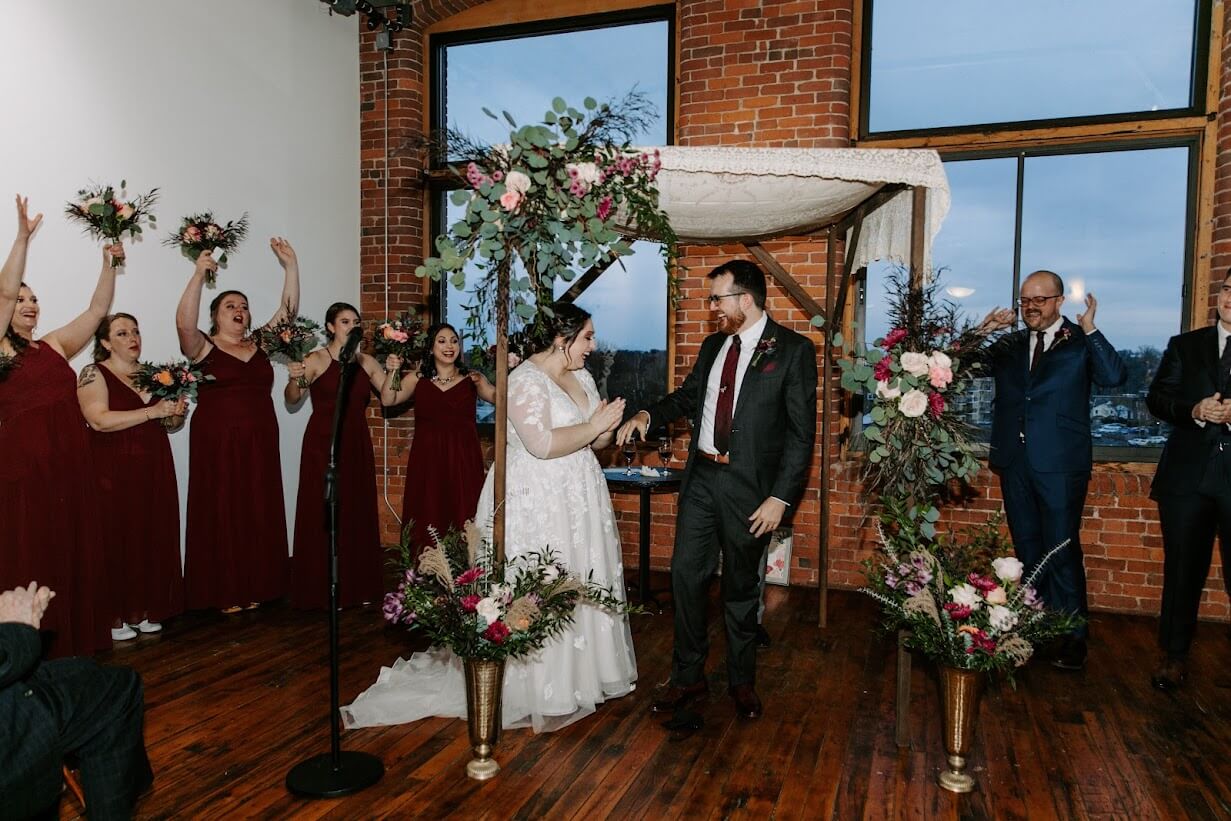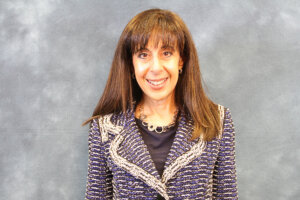Allowing rabbis to officiate intermarriages will alienate the Conservative movement from its own members
It is impossible to fathom how Conservative Judaism can retain its members if it allows its clergy to officiate intermarriages

Graphic by Angelie Zaslavsky
A controversy involving interfaith marriage is once again in the news.
The Forward reported that a group of prominent Conservative rabbis last year wrote a letter urging the Rabbinical Assembly to retain its ban on member rabbis performing marriages between Jews and non-Jews.
The letter was ostensibly motivated by rumors of an imminent change in policy that turned out to be false. But the issue of lifting the ban continues to surface in the media, and remains contentious in many Conservative circles.
As a legal scholar specializing in the intersection of Jewish law and culture — and a lifelong member of Conservative synagogues — I am glad the rumors turned out to be false. I fear that lifting the ban on intermarriage would not only eviscerate whatever meaningful differences currently exist between Conservative and Reform Judaism, but also drive away most traditionally observant Conservative Jews.
Let me be clear: I am glad that religiously liberal denominations have lower barriers to entry. There should be a place for every family who wants to affiliate with a Jewish community to do so. But it is impossible to fathom how Conservative Judaism can maintain credibility as a movement if it allows its clergy to officiate intermarriages.
Keeping Jewish law relevant to modern Jews
Throughout its history, Conservative Judaism has sought to strike a balance between adherence to Jewish law and looking outside Jewish tradition to ensure the ongoing relevance of its rulings.
While it is true that most Conservative Jews do not live completely within the halachic system, a core group is serious about following Jewish law according to the movement’s standards. Others value the law in theory, even if not always in practice.
The movement’s rabbinic leadership has always taken the observance of halacha seriously. And on intermarriage, tradition is clear: Jewish law prohibits the marriage between a Jew and a non-Jew. In addition, Jewish membership is determined by matrilineal descent, and any rabbi who violates either of these standards can be expelled from the Conservative movement.
If the Rabbinical Assembly were to lift the ban on its rabbis officiating at intermarriages, it would also need to consider whether to discard the matrilineal descent standard.
The movement’s leaders might want to consider the Reform movement’s experience in this regard. In 1983, the Reform movement ruled that all children with one Jewish parent are “under the presumption of Jewish descent” if they publicly manifest a positive and exclusive Jewish identity.
In 1995, the Reform movement grappled with the parameters of its position, and issued a legal ruling in response to a question from a congregation concluding that a child raised in a dual- religion household did not meet the criteria for a presumption of Jewishness.
By 2019, a survey by the Center for Radically Inclusive Judaism showed that in 20% of Reform congregations, some children are receiving formal religious education in another religion, and in 22% of Reform congregations, some or all of the clergy are co-officiating at interfaith weddings. This same survey also shows more liberalization when it comes to the extent to which non-Jews can participate in certain ritual activities.
Inclusive in practice
Not officiating, though, does not mean closing the door. Many people may not realize that the Conservative movement has already taken important steps to welcome intermarried couples. In 2017, the umbrella synagogue arm of the movement passed a resolution allowing non-Jews to join Conservative synagogues. In 2020, the movement hired an interfaith specialist to provide support for intermarried couples belonging to their member synagogues.
I recently spoke with a Conservative rabbi who told me that 10% of his congregants are intermarried, and these individuals feel very supported in his congregation despite his personal opposition to lifting the ban. This observation comports with my substantial anecdotal experience gathered from Zoom talks at close to 100 Conservative synagogues over the past couple of years.
Conservative rabbis must also consider that lifting this ban will likely cause a portion of their most seriously observant members to affiliate elsewhere. Marrying Jewish is an important family goal for more than a few Conservative Jewish parents, and this change will severely compromise their ability to send this message to their children. In addition, this change will impact the movement’s camps and youth groups, likely weakening their ability to create an environment with the type of religious cultural norms and messaging many Conservative Jewish parents still value, and to which they presently devote substantial financial resources.
Equally significant, this change will negatively impact those Conservative rabbis and their families who do not want to officiate at interfaith weddings. Several years ago, a prominent Reform rabbi told me that her colleagues who do not officiate at intermarriages will either not get jobs, or will have difficulty retaining their current positions.
Currently, the Conservative movement is a big tent. Traditionally religious Jews feel at home, and so do Jews who are less observant, but still interested in affiliating institutionally with synagogues that maintain stronger religious norms.
Lifting the ban on performing intermarriages is likely to result in diluting the halachic brand of Conservative Judaism and destroying the movement’s much-needed centrist religious space.
To contact the author, email [email protected]

















